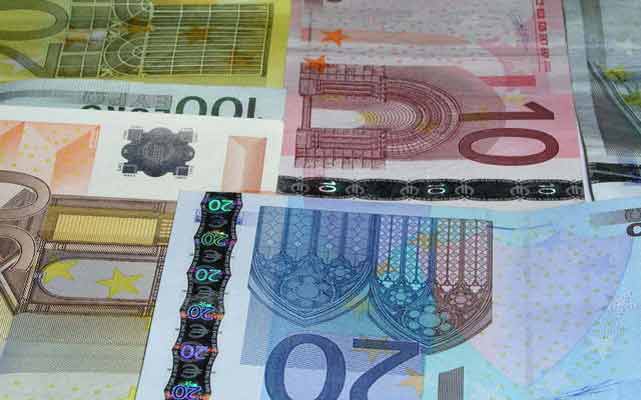Pound-to-Euro Forecast: GBP Retreats on Zero Growth, ECB in Focus
- Written by
David Woodsmith

The Pound to Euro (GBP/EUR) exchange rate retreated from one-week highs on Friday after UK GDP data confirmed the economy stalled in July.
Sterling dipped back towards 1.1540 as investors reassessed growth risks ahead of November’s budget, while the Euro held steady before the European Central Bank’s latest policy decision.
The Pound had tested 1.1575 earlier in the week, but the latest GDP release undercut confidence. Reuters reported that “Britain's economy recorded zero monthly growth in July after a sharp drop in factory output, in line with expectations for a slower start to the second half of 2025. Manufacturing output — which makes up 9% of the economy — dropped by a hefty 1.3% on the month with declines across various types of production, led by computers, electronics and pharmaceuticals, the Office for National Statistics said.”
The data reinforced fears that momentum is fading after June’s 0.4% expansion, with analysts warning that fiscal headwinds could intensify into the autumn.
MUFG said; “At the last policy meeting the ECB signalled that their easing cycle is now closer to the end. We expect the ECB to stick to similar guidance today but believe it is likely too soon for the ECB to clearly signal an end to the easing cycle at the current juncture which would provide an upside surprise for the euro.”
It added; “Having said that the comments from President Lagarde are likely to indicate that there is a higher hurdle for further rate cuts.”
French politics will also remain a backdrop as new Prime Minister Lecornu attempts to build consensus for the 2026 budget.
On the UK side, ING highlighted that gilt markets have stabilised, but warned risks remain; “When looking at the infamous 30-year bonds, gilts have actually outperformed the rest of Europe since the start of the month, now yielding 25bp below the 3 September 5.74% peak.”
The bank stressed that fiscal pressures could still weigh; “Higher front-end rates led by a hawkish Bank of England continue to make the pound an expensive sell against the euro in periods of gilt stability.”
Rabobank was more cautious, pointing to political constraints: “It is difficult to figure out exactly how she will balance the books in the autumn budget given that Labour MPs have baulked at cutting welfare spending and in view of her own set of strict fiscal rules. The market is therefore likely to remain sensitive to fiscal matters in the UK.”
STORY LINK Pound-to-Euro Forecast: GBP Retreats on Zero Growth, ECB in Focus

The Pound to Euro (GBP/EUR) exchange rate retreated from one-week highs on Friday after UK GDP data confirmed the economy stalled in July.
Sterling dipped back towards 1.1540 as investors reassessed growth risks ahead of November’s budget, while the Euro held steady before the European Central Bank’s latest policy decision.
GBP/EUR Forecasts: Dip to 1.1553
The Pound had tested 1.1575 earlier in the week, but the latest GDP release undercut confidence. Reuters reported that “Britain's economy recorded zero monthly growth in July after a sharp drop in factory output, in line with expectations for a slower start to the second half of 2025. Manufacturing output — which makes up 9% of the economy — dropped by a hefty 1.3% on the month with declines across various types of production, led by computers, electronics and pharmaceuticals, the Office for National Statistics said.”
The data reinforced fears that momentum is fading after June’s 0.4% expansion, with analysts warning that fiscal headwinds could intensify into the autumn.
MUFG said; “At the last policy meeting the ECB signalled that their easing cycle is now closer to the end. We expect the ECB to stick to similar guidance today but believe it is likely too soon for the ECB to clearly signal an end to the easing cycle at the current juncture which would provide an upside surprise for the euro.”
It added; “Having said that the comments from President Lagarde are likely to indicate that there is a higher hurdle for further rate cuts.”
Save on Your GBP/EUR Transfer
Get better rates and lower fees on your next international money transfer. Compare TorFX with top UK banks in seconds and see how much you could save.
On the UK side, ING highlighted that gilt markets have stabilised, but warned risks remain; “When looking at the infamous 30-year bonds, gilts have actually outperformed the rest of Europe since the start of the month, now yielding 25bp below the 3 September 5.74% peak.”
The bank stressed that fiscal pressures could still weigh; “Higher front-end rates led by a hawkish Bank of England continue to make the pound an expensive sell against the euro in periods of gilt stability.”
Rabobank was more cautious, pointing to political constraints: “It is difficult to figure out exactly how she will balance the books in the autumn budget given that Labour MPs have baulked at cutting welfare spending and in view of her own set of strict fiscal rules. The market is therefore likely to remain sensitive to fiscal matters in the UK.”
International Money Transfer? Ask our resident FX expert a money transfer question or try John's new, free, no-obligation personal service! ,where he helps every step of the way, ensuring you get the best exchange rates on your currency requirements.
TAGS: Pound Euro Forecasts
Comments are currrently disabled
Related Stories:
- British Pound to Euro Forecast: GBP Supported as UK Retail Sales Surge - February 20, 2026
- Pound-Euro Flat - February 19, 2026
- British Pound to Euro Forecast: Inflation Falls, Yet GBP Vulnerable - February 19, 2026
- Pound to Euro Rebounds - February 18, 2026
- British Pound to Euro Forecast: GBP Recovers on "Mixed" UK Inflation - February 18, 2026
- Pound to Euro Slides - February 17, 2026
- British Pound to Euro Forecast: GBP Dips Amid Weak Labour Market - February 17, 2026
- Pound to Euro Steady Before Labour and CPI Tests - February 16, 2026
- Pound to Euro Week Ahead Forecast: UK Data, Elections Decide Next GBP Move - February 16, 2026
Latest News:
- British Pound to Euro Forecast: GBP Supported as UK Retail Sales Surge - February 20, 2026
- Pound to Dollar Exchange Rate Slides as Technical Support Fails - February 20, 2026
- Pound-Euro Flat - February 19, 2026
- GBP/USD Price Forecast: Pound Sterling Firms After Fed Minutes - February 19, 2026
- Pound Sterling to Dollar Forecast: GBP Finds Support as BoE Cut Bets Rise - February 19, 2026
- British Pound to Euro Forecast: Inflation Falls, Yet GBP Vulnerable - February 19, 2026
- GBP/USD Forecast: Pound Sterling Steady despite Softer UK Inflation - February 18, 2026
- Pound to Euro Rebounds - February 18, 2026
- Pound to Dollar Forecast: GBP Tests 10-Day Lows Before Stabilising - February 18, 2026
- British Pound to Euro Forecast: GBP Recovers on "Mixed" UK Inflation - February 18, 2026









